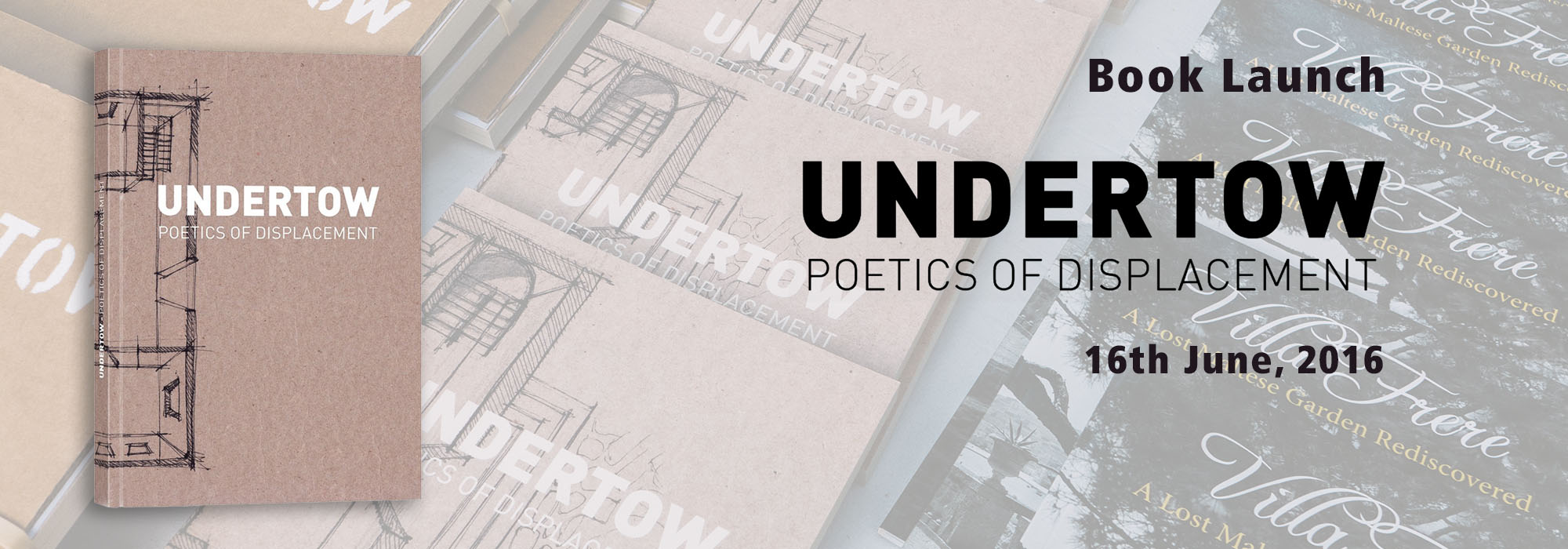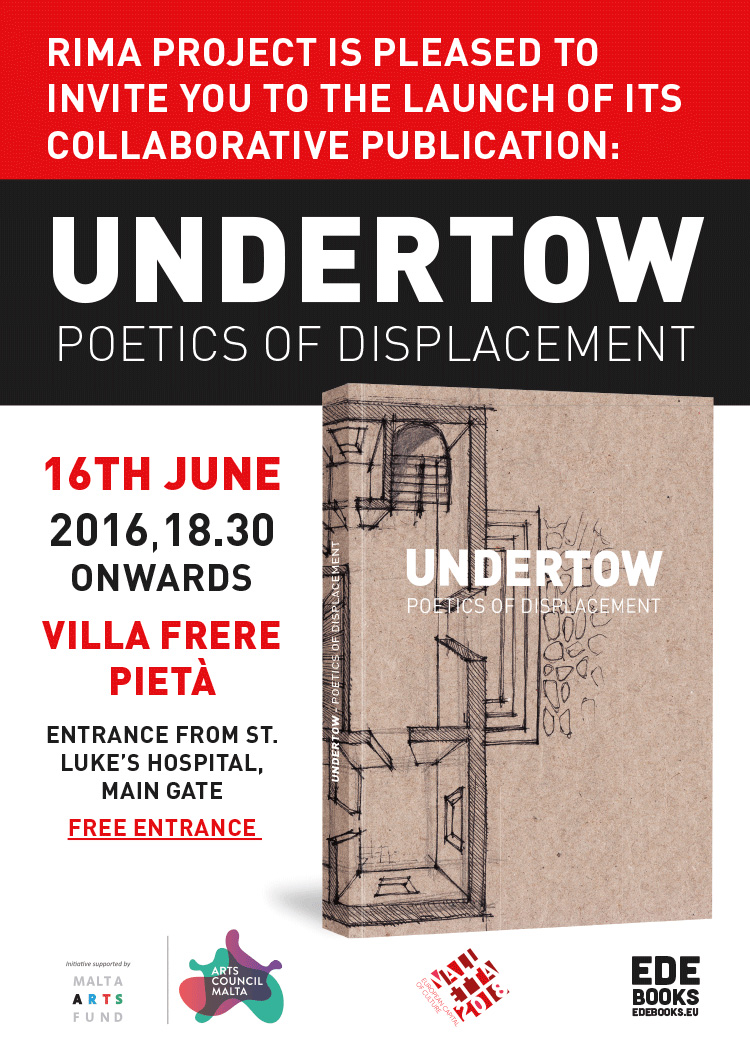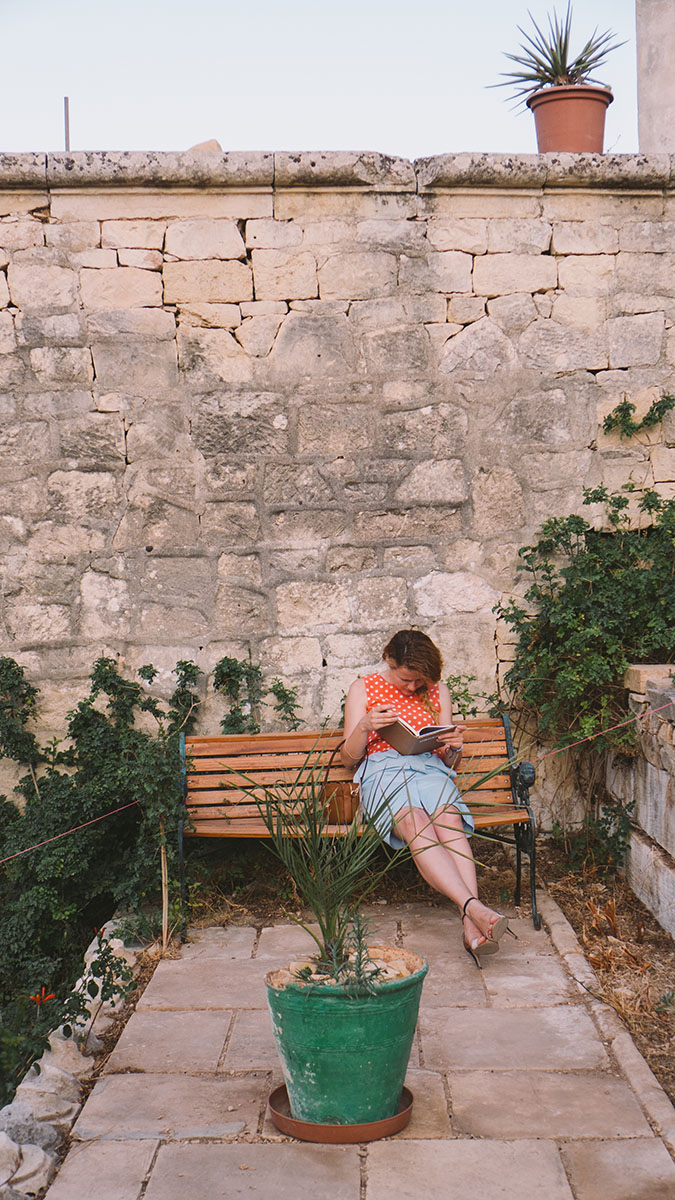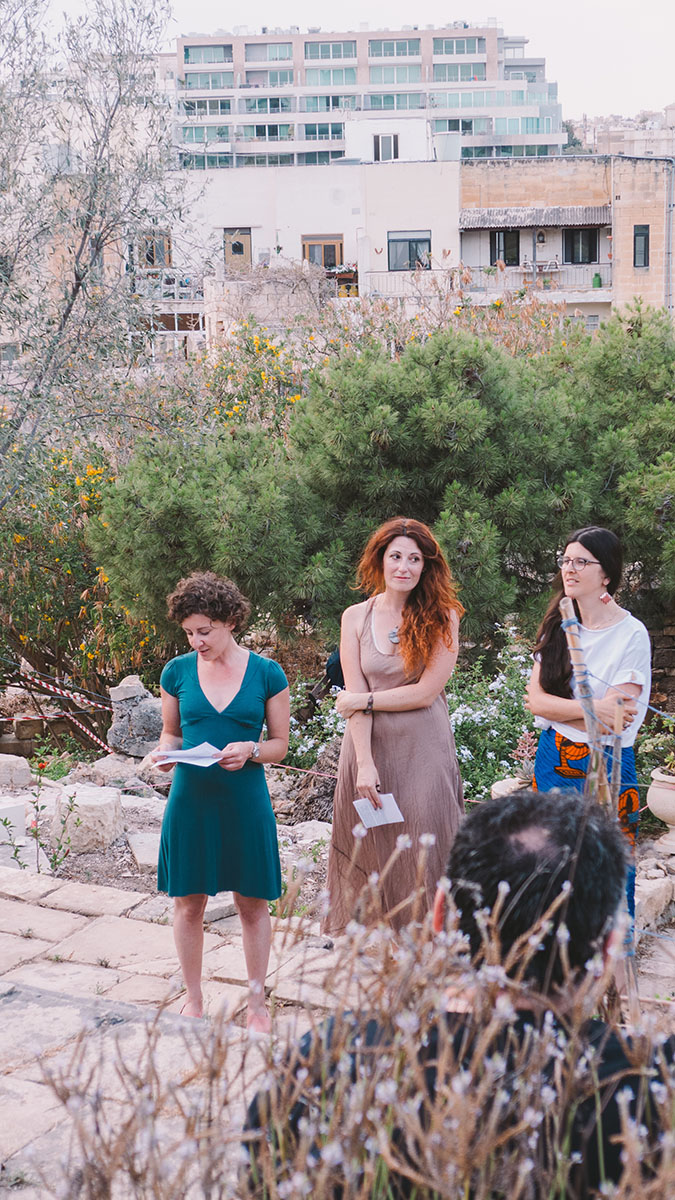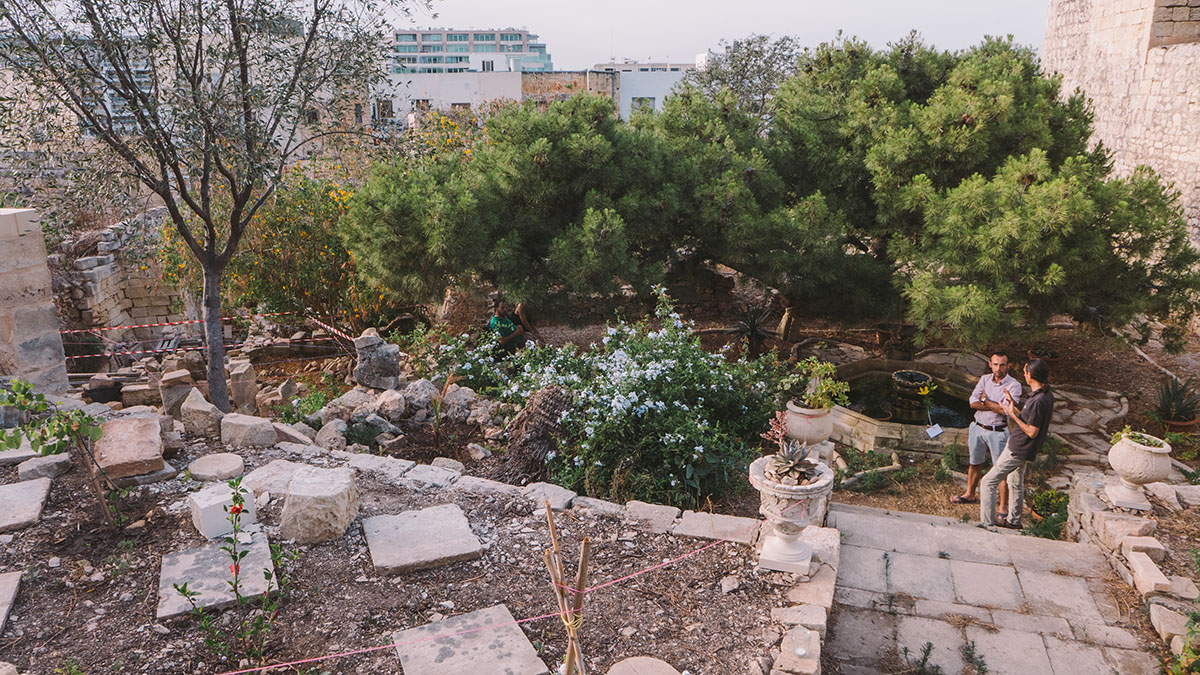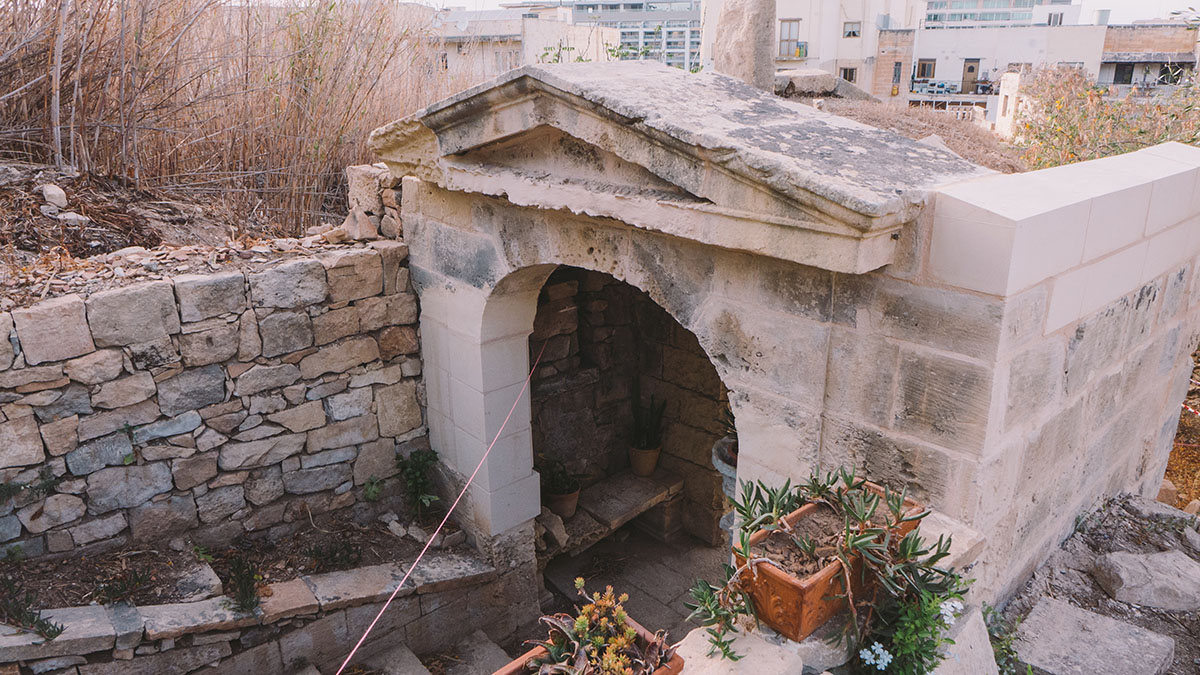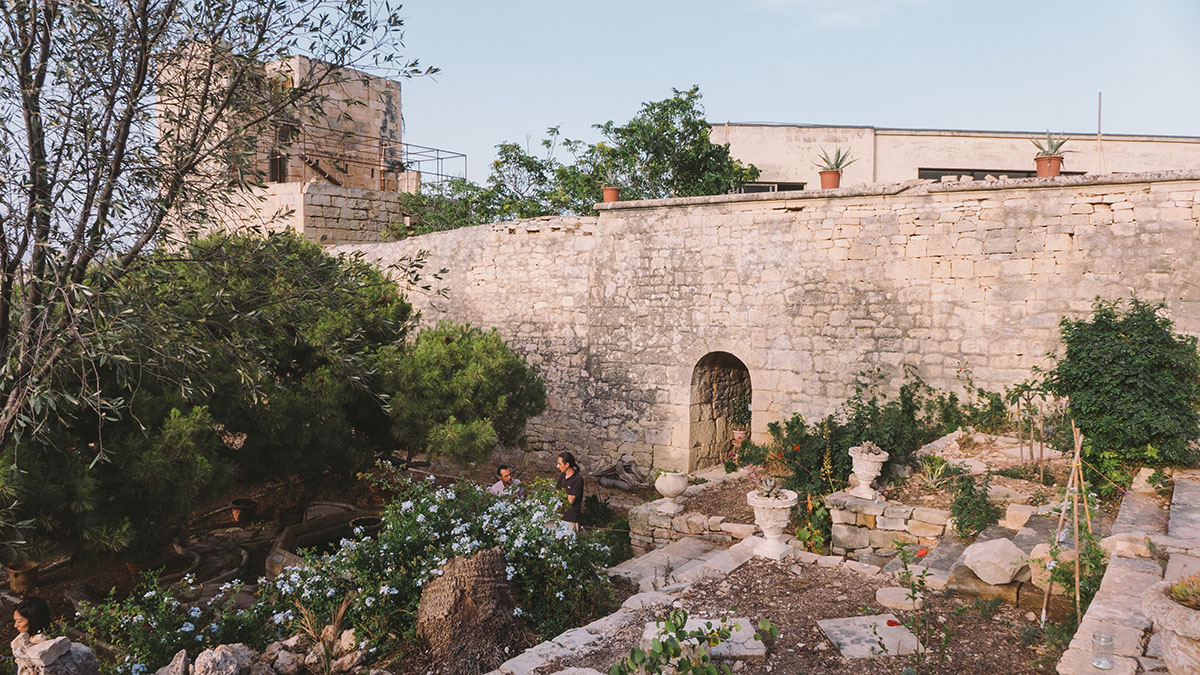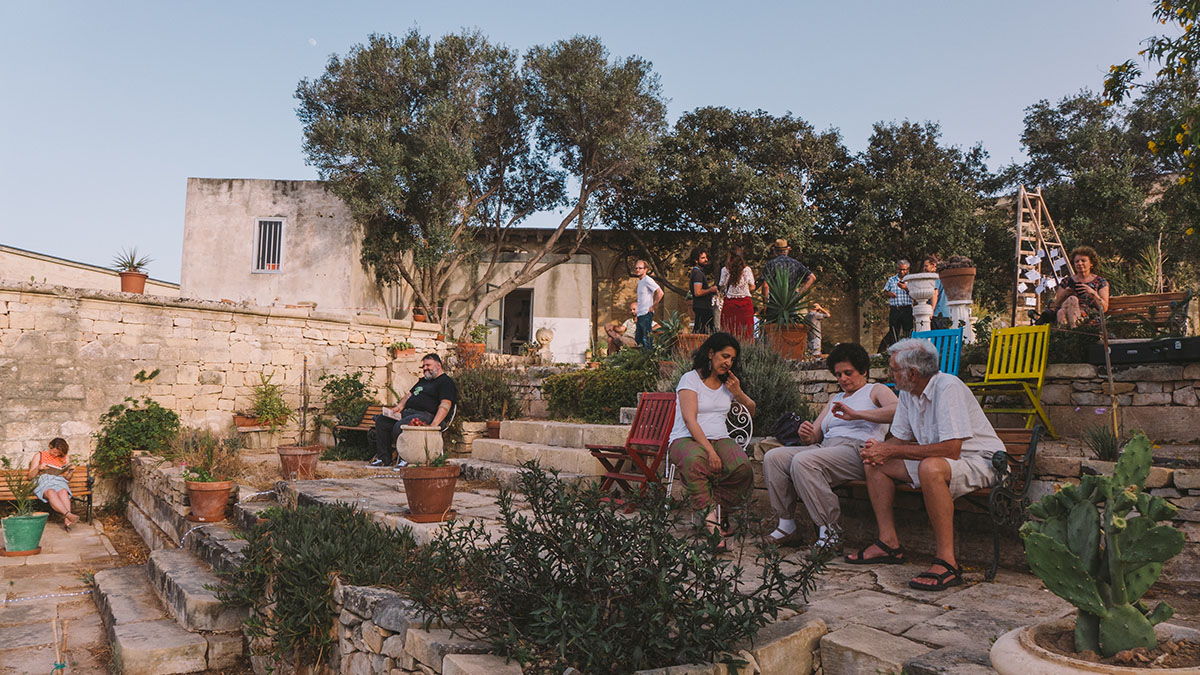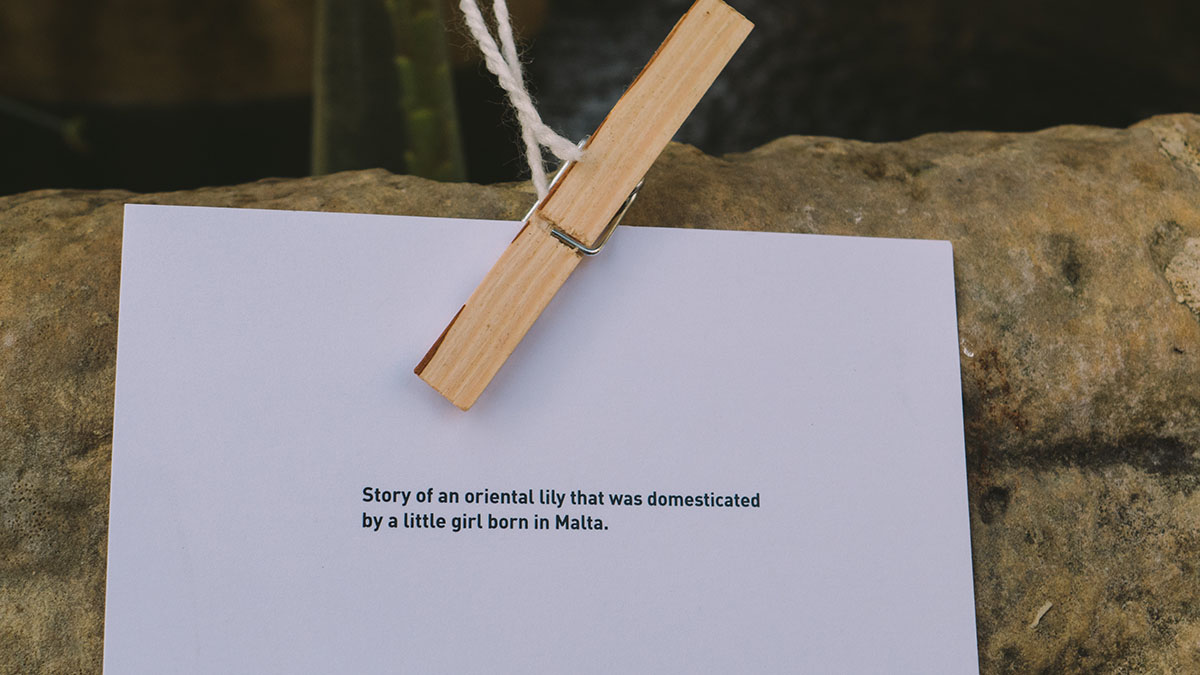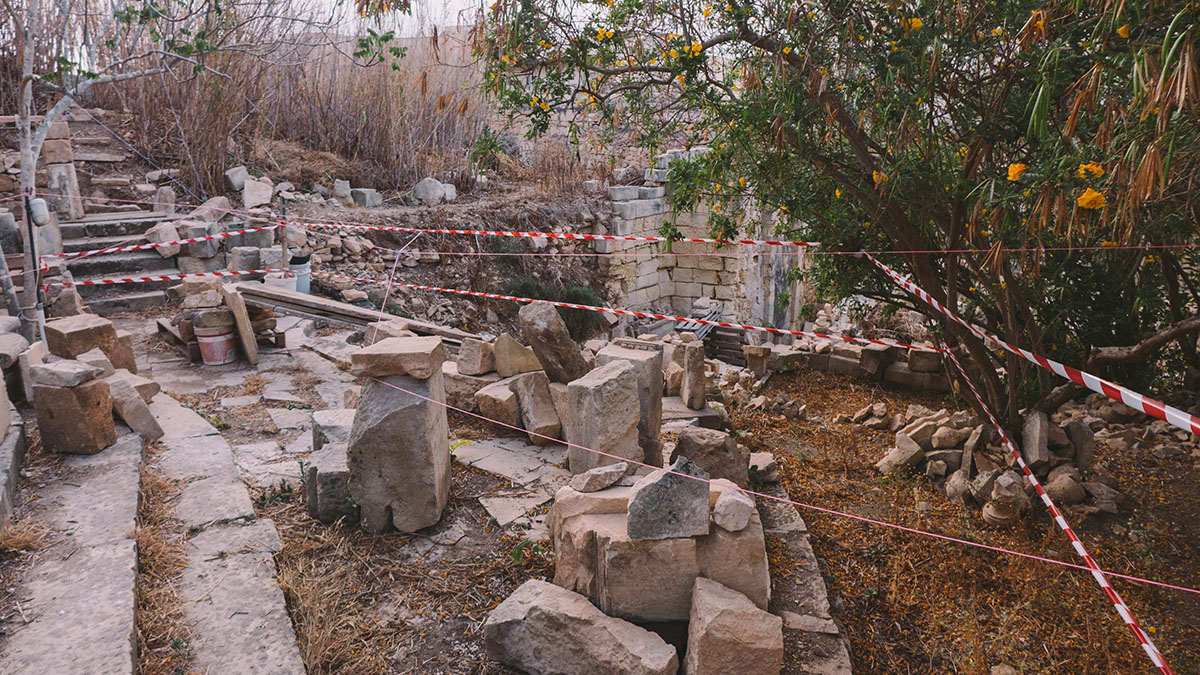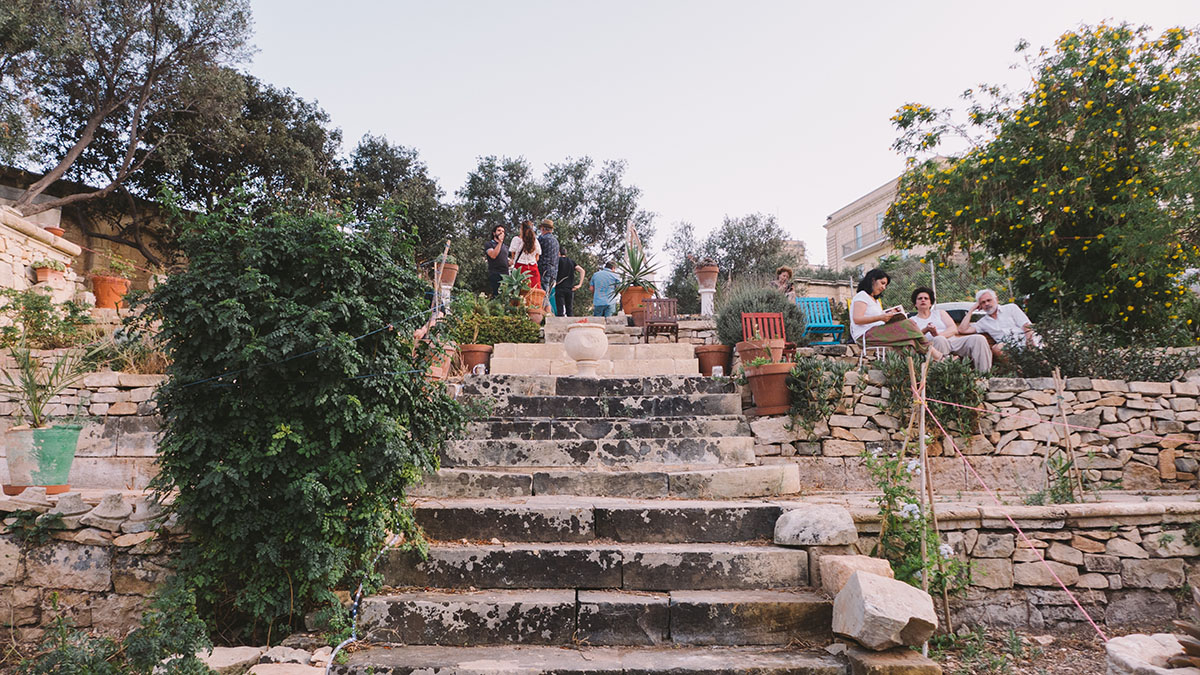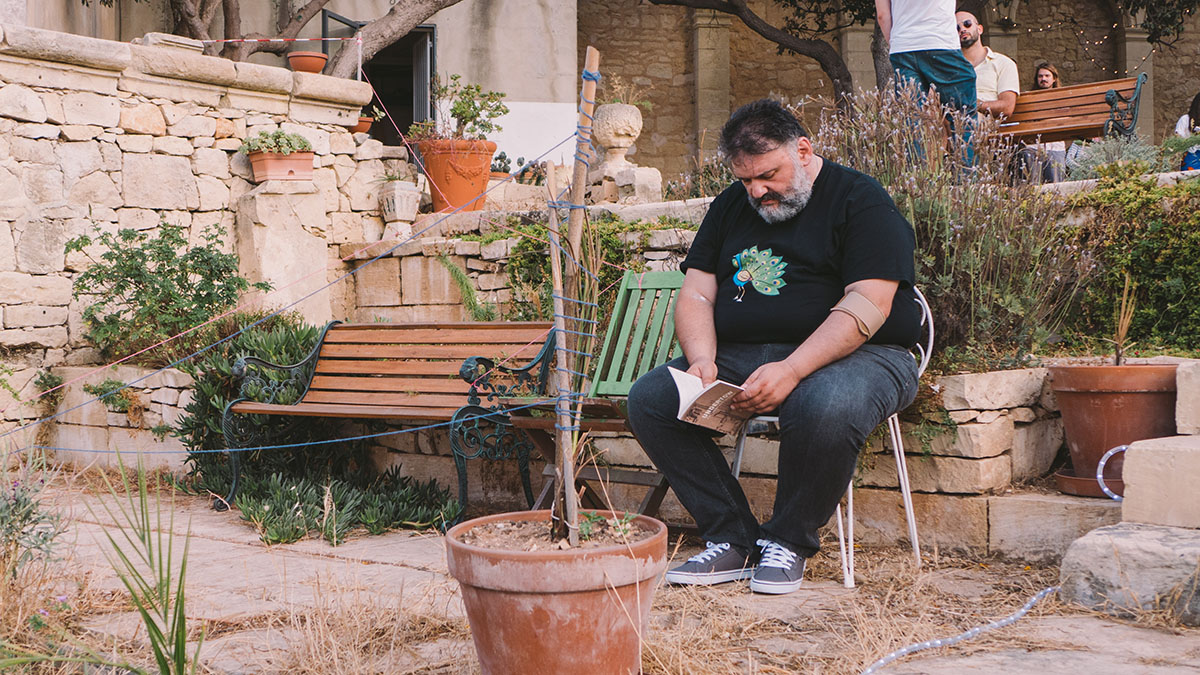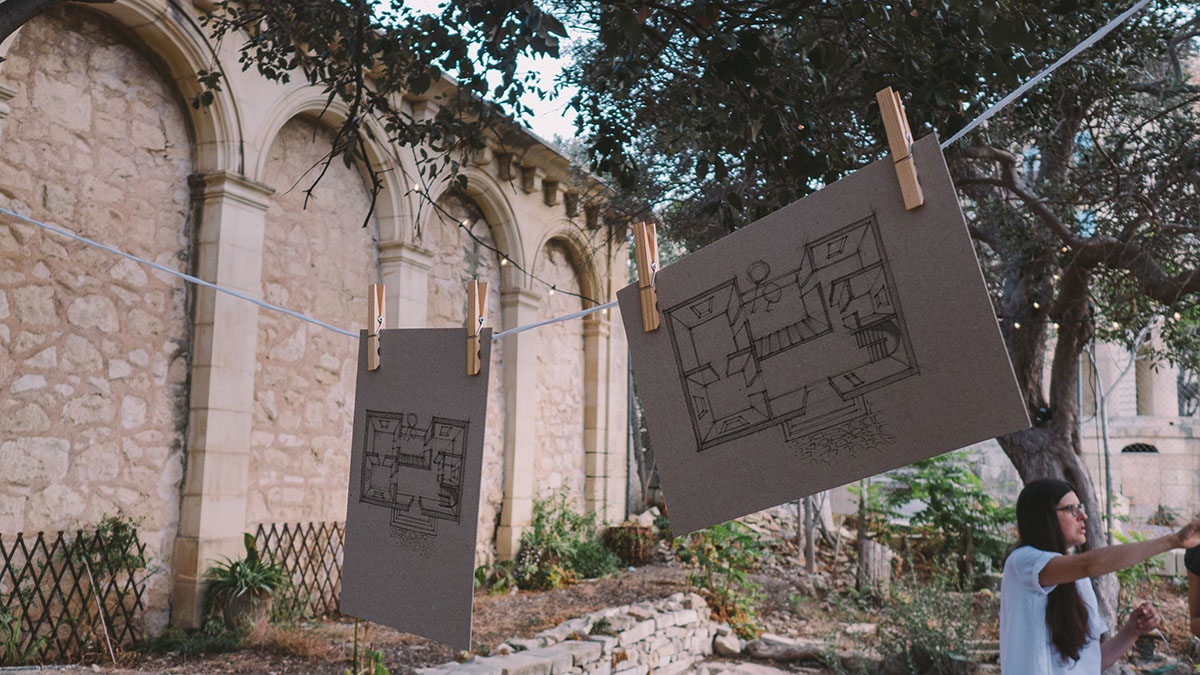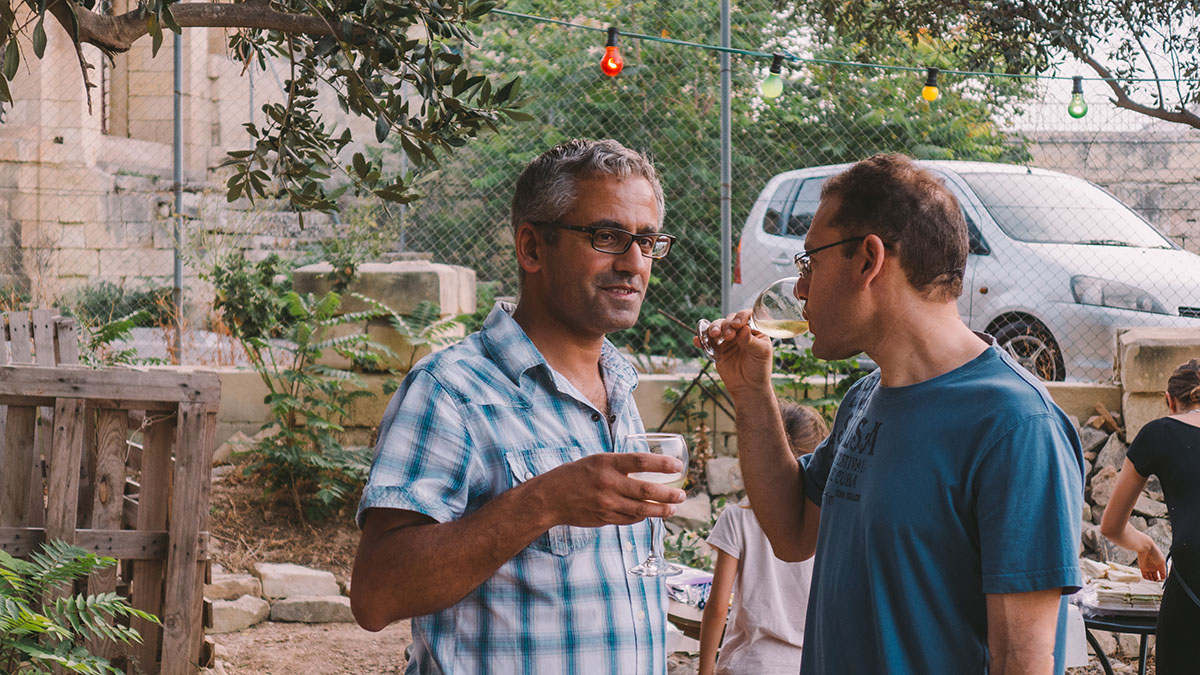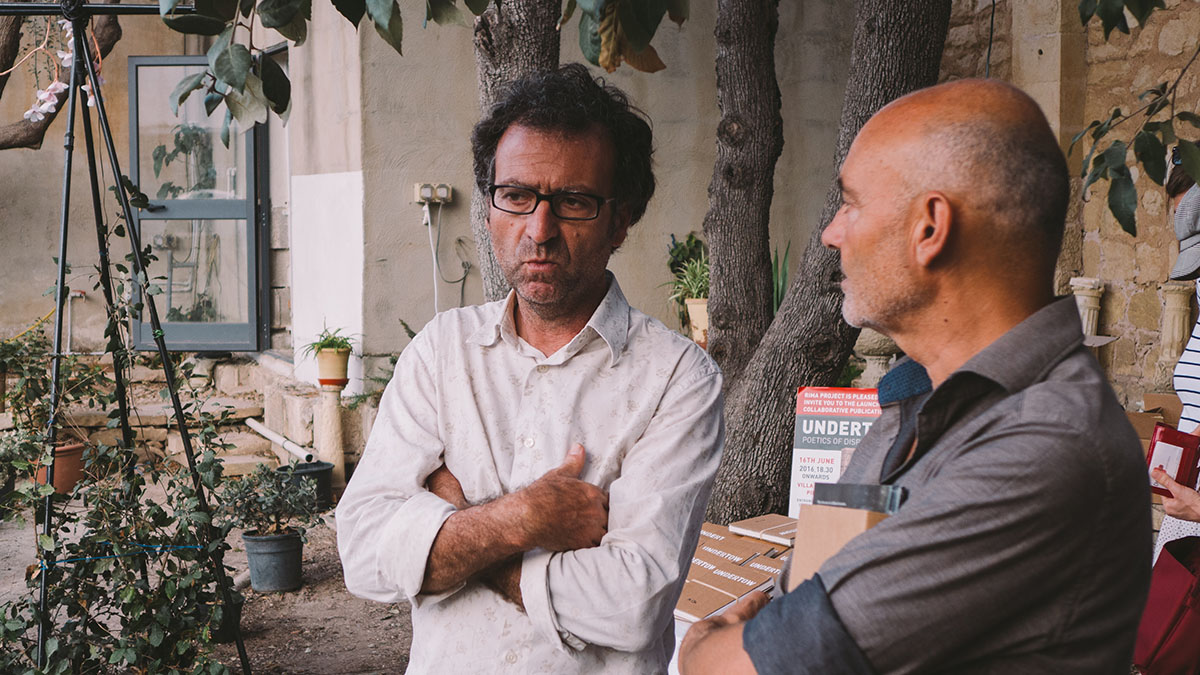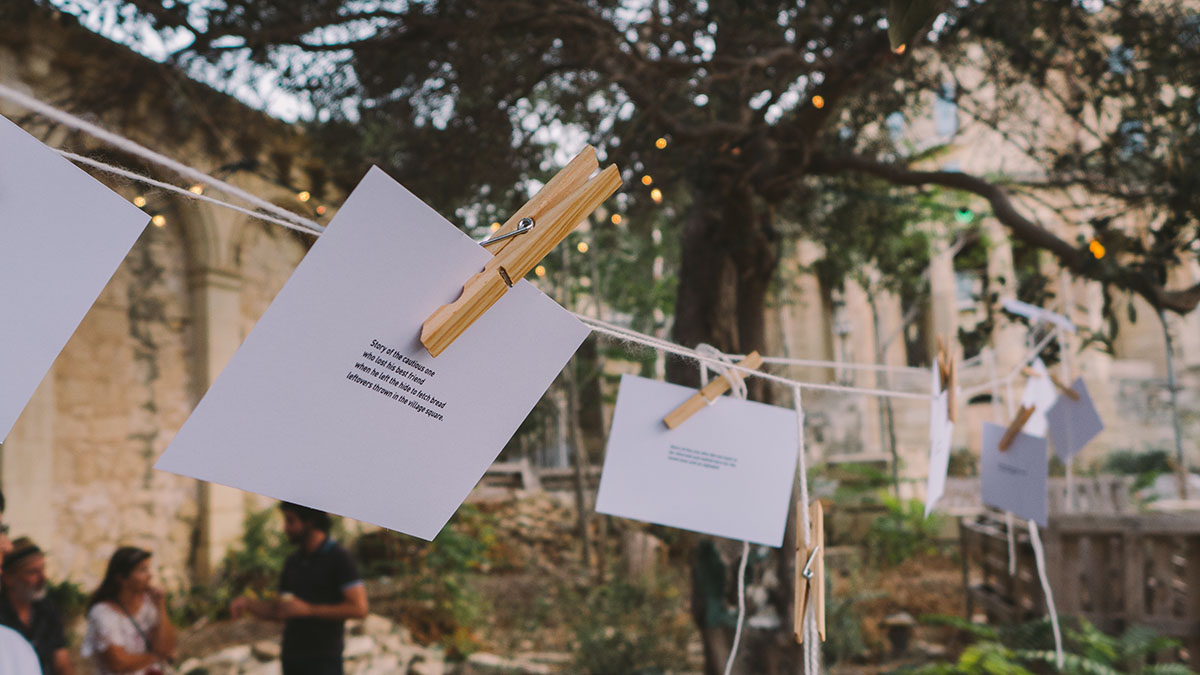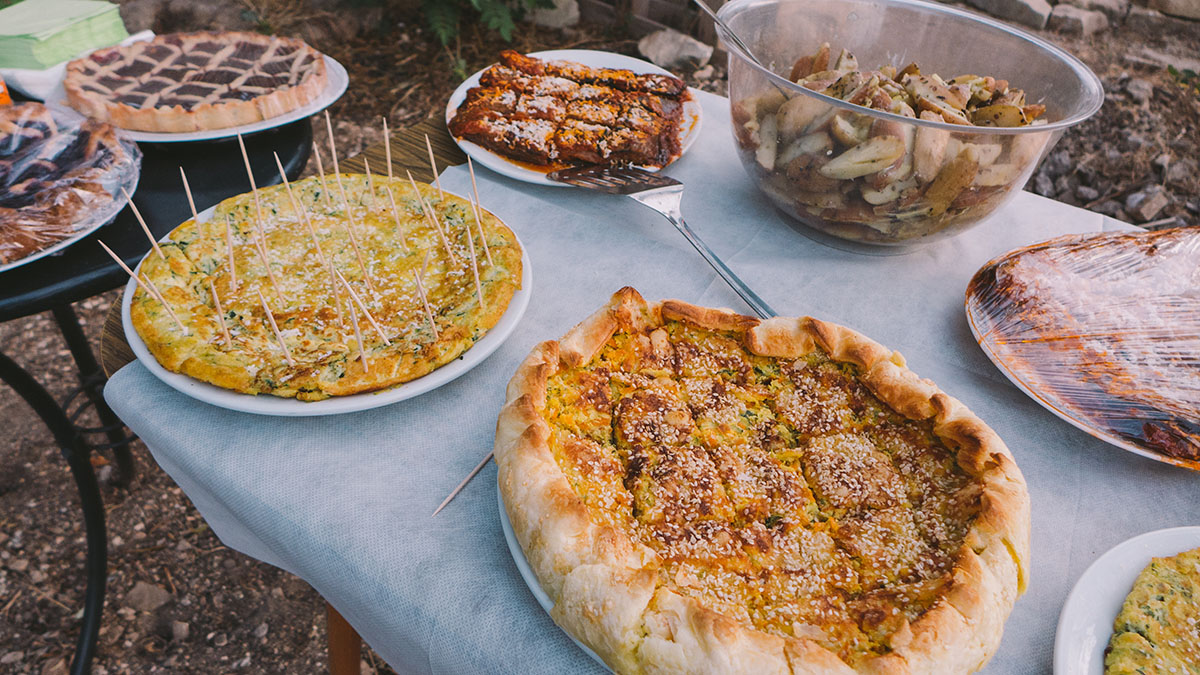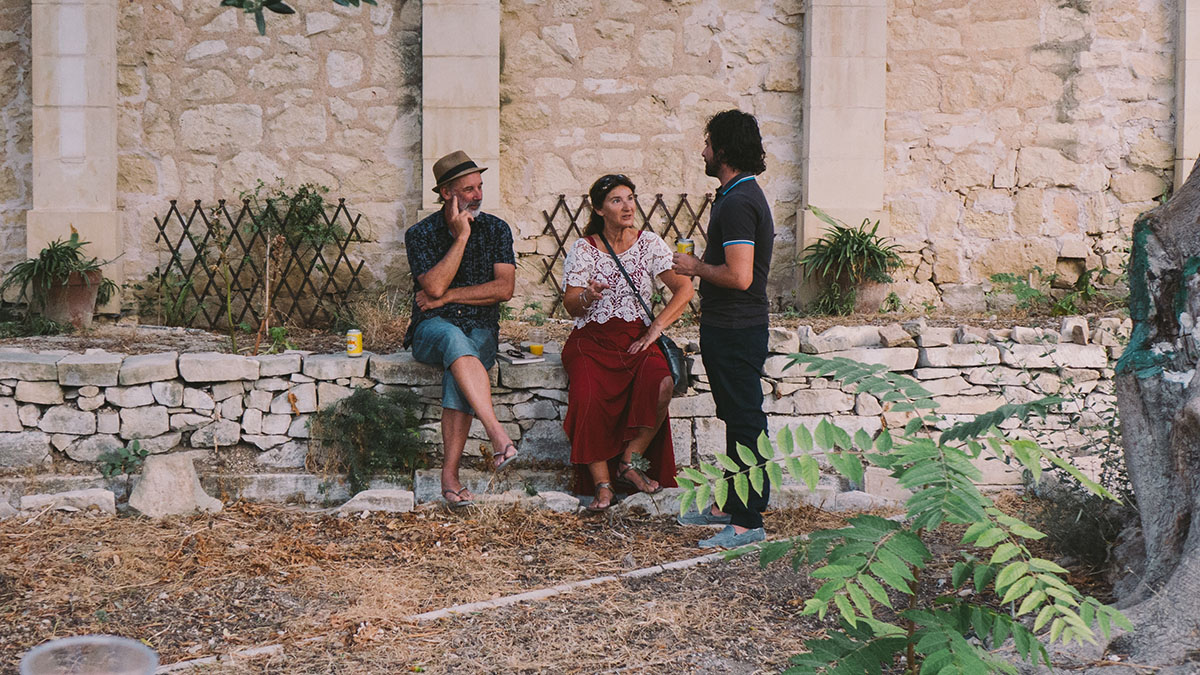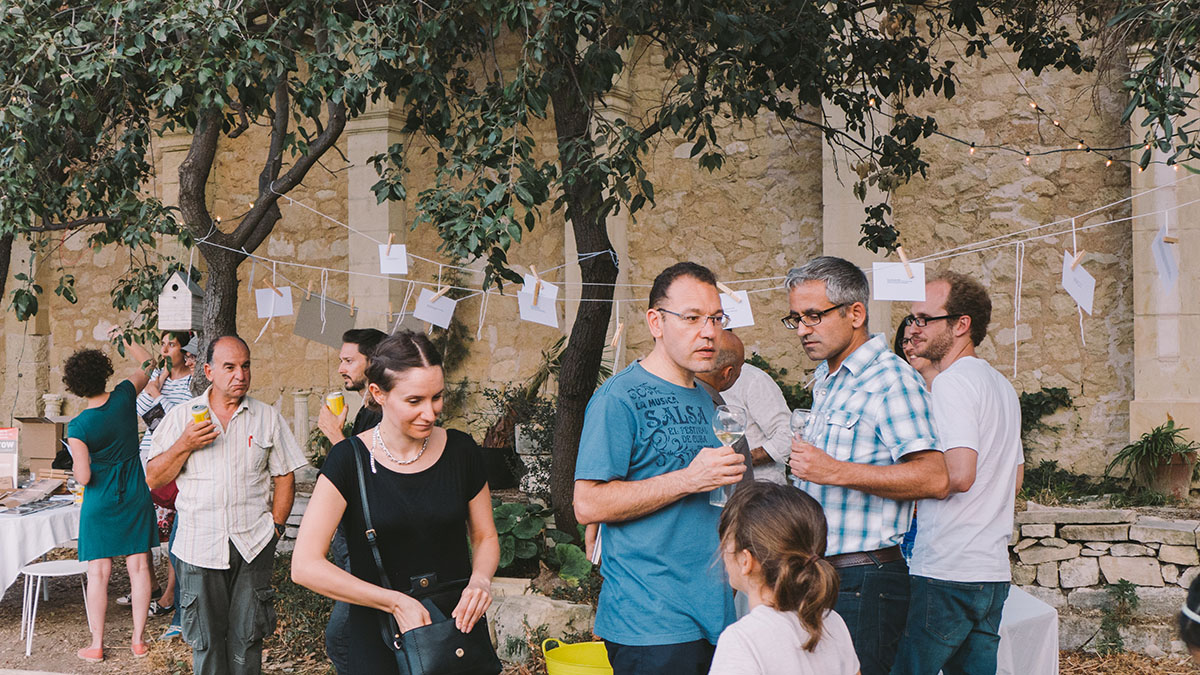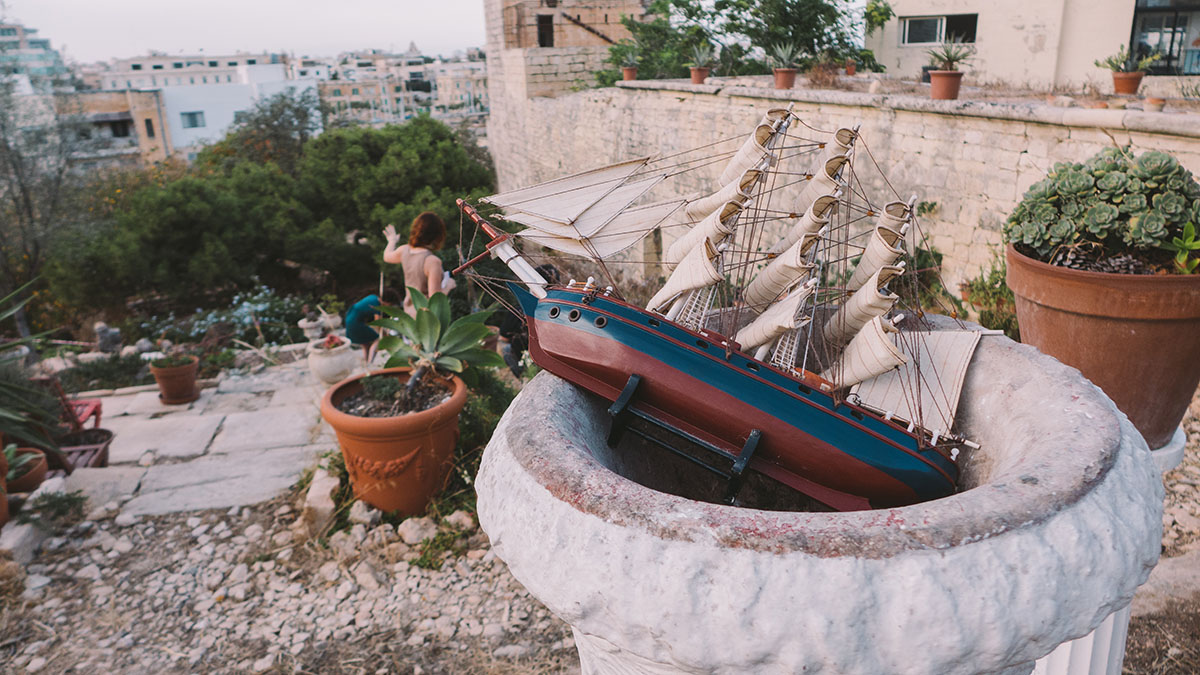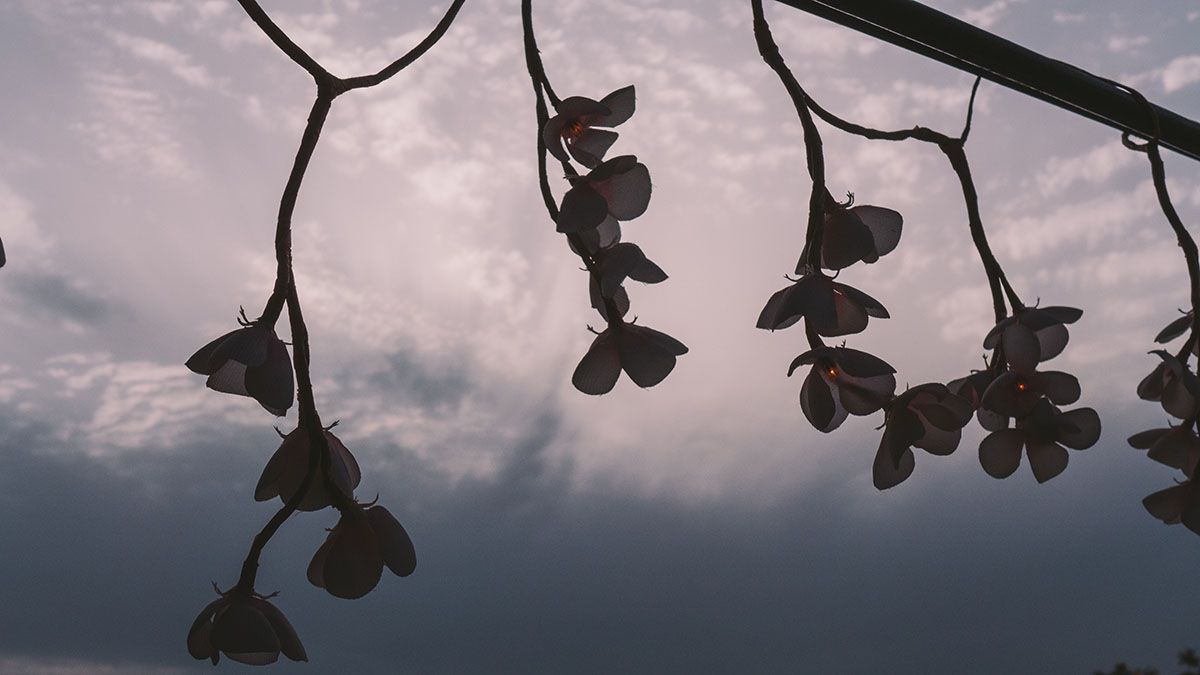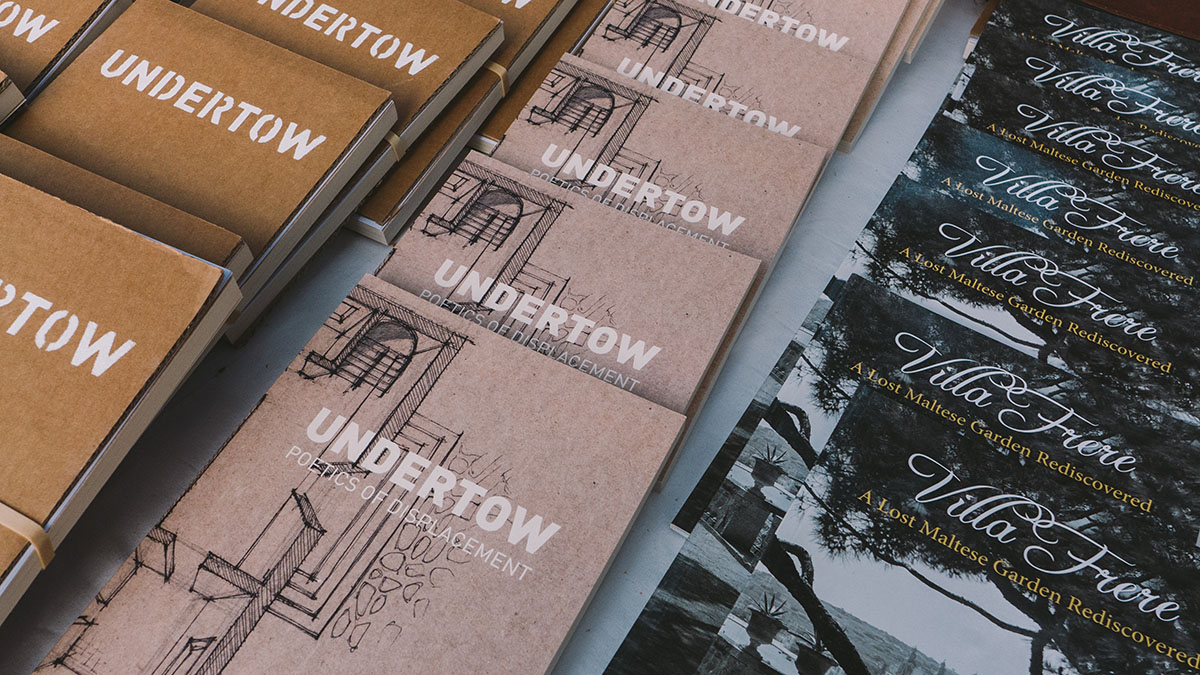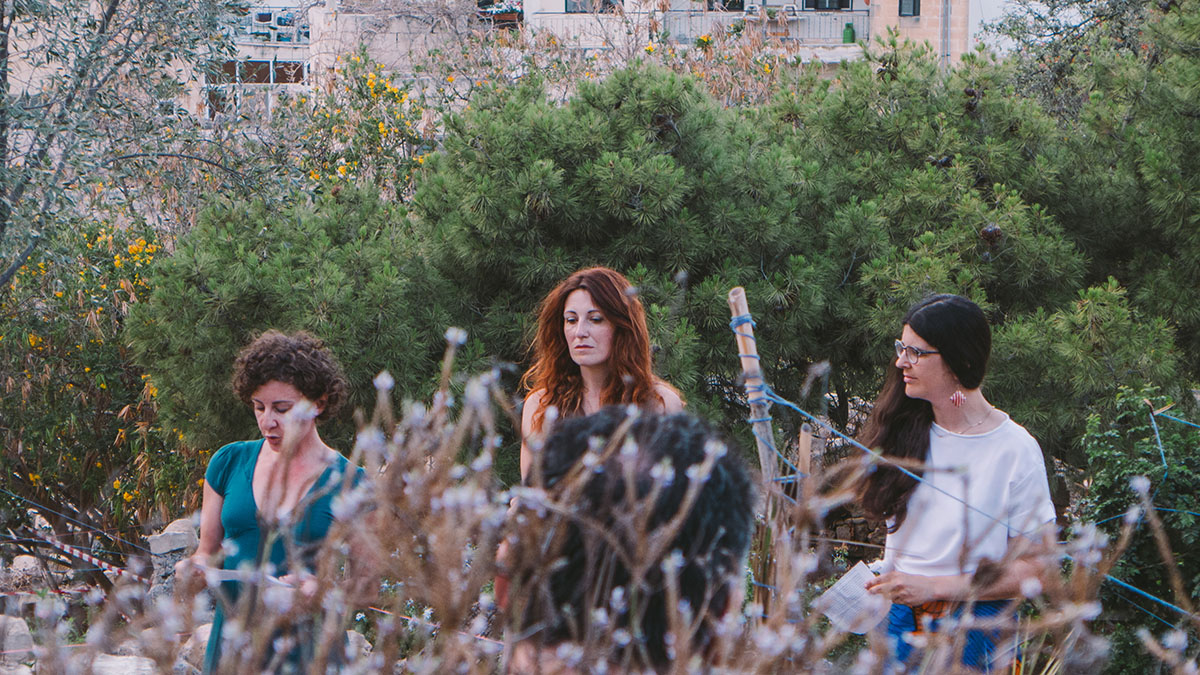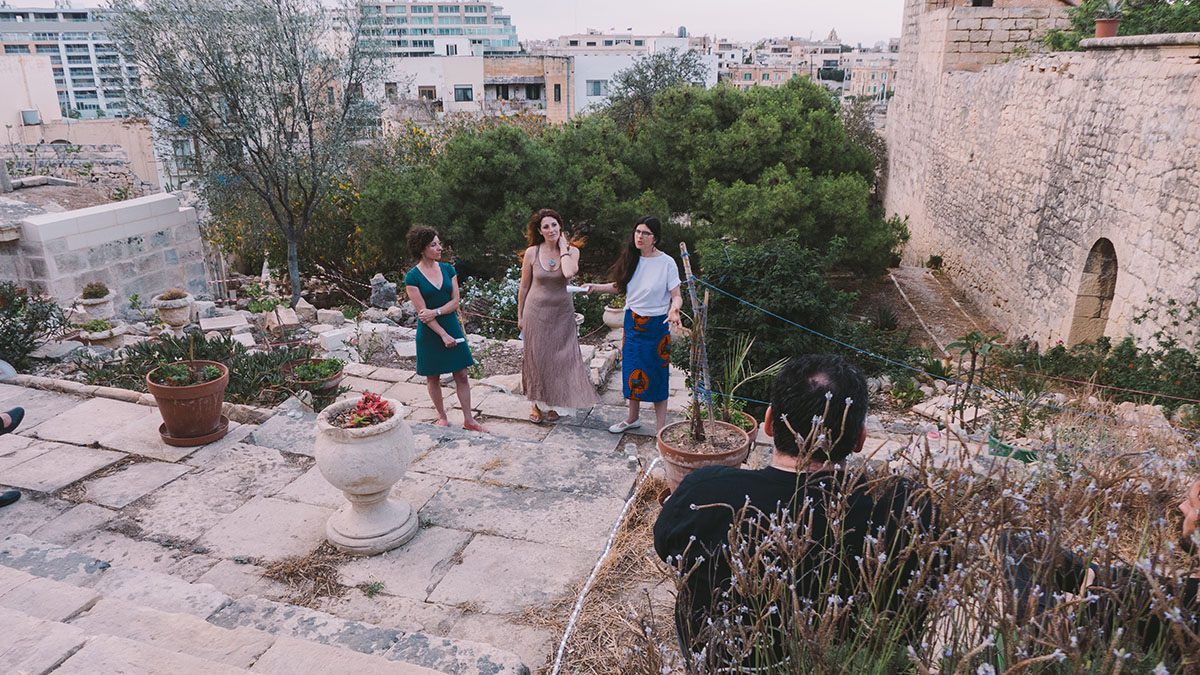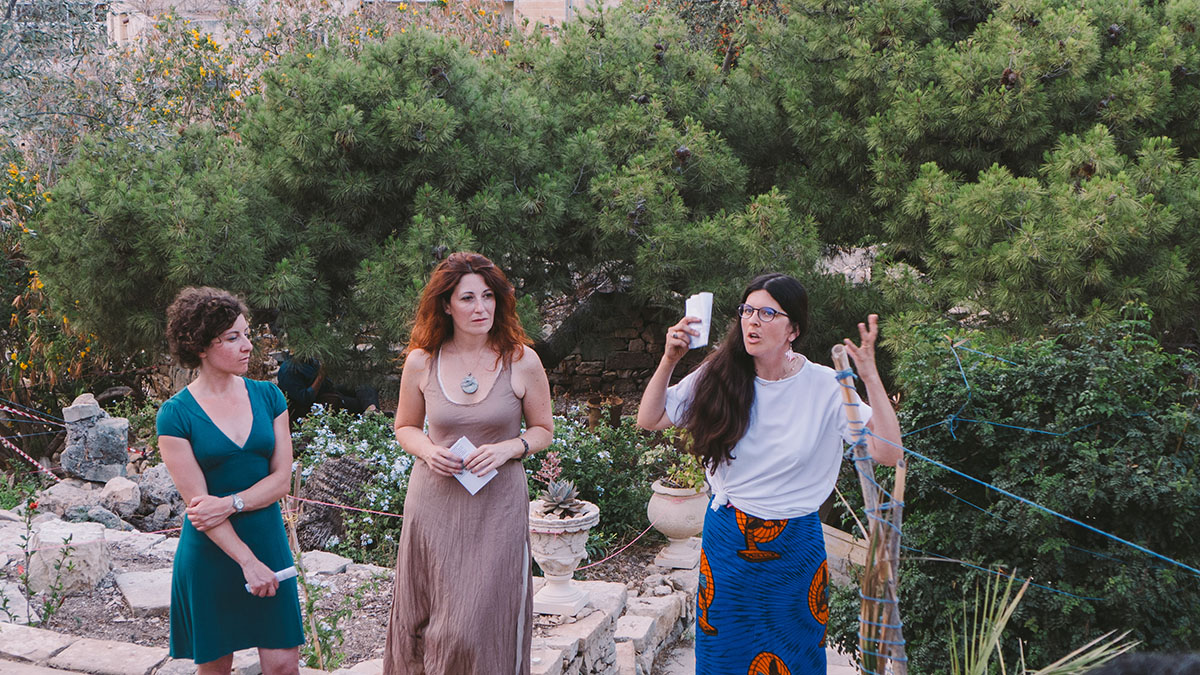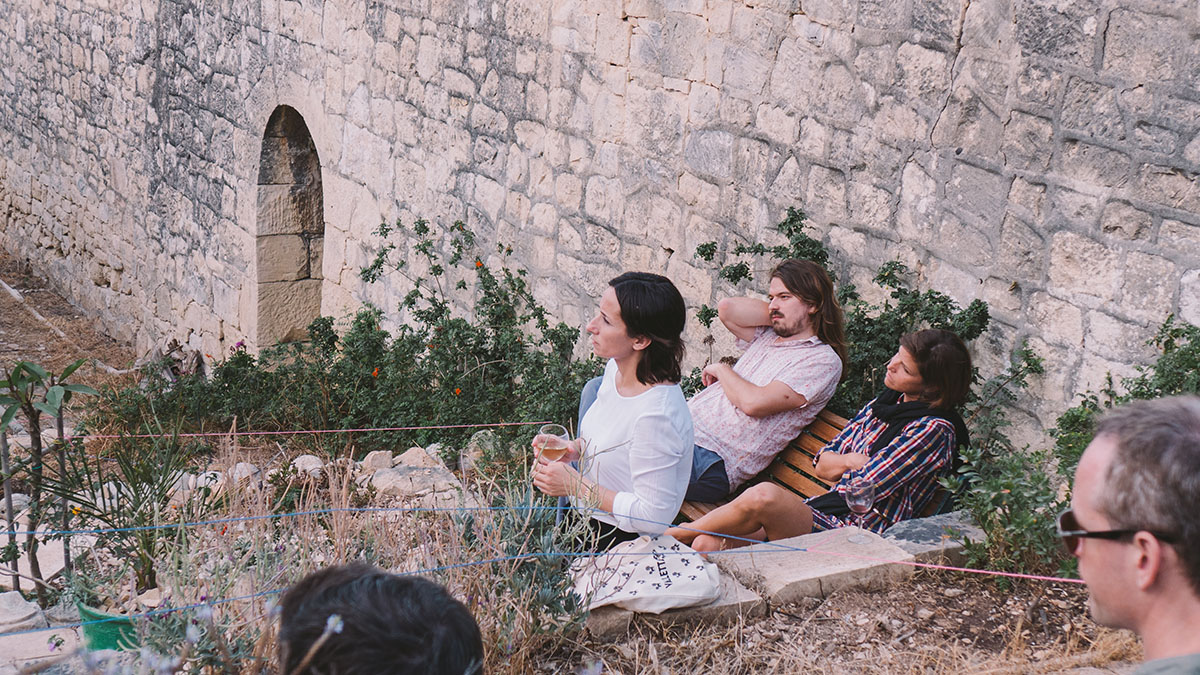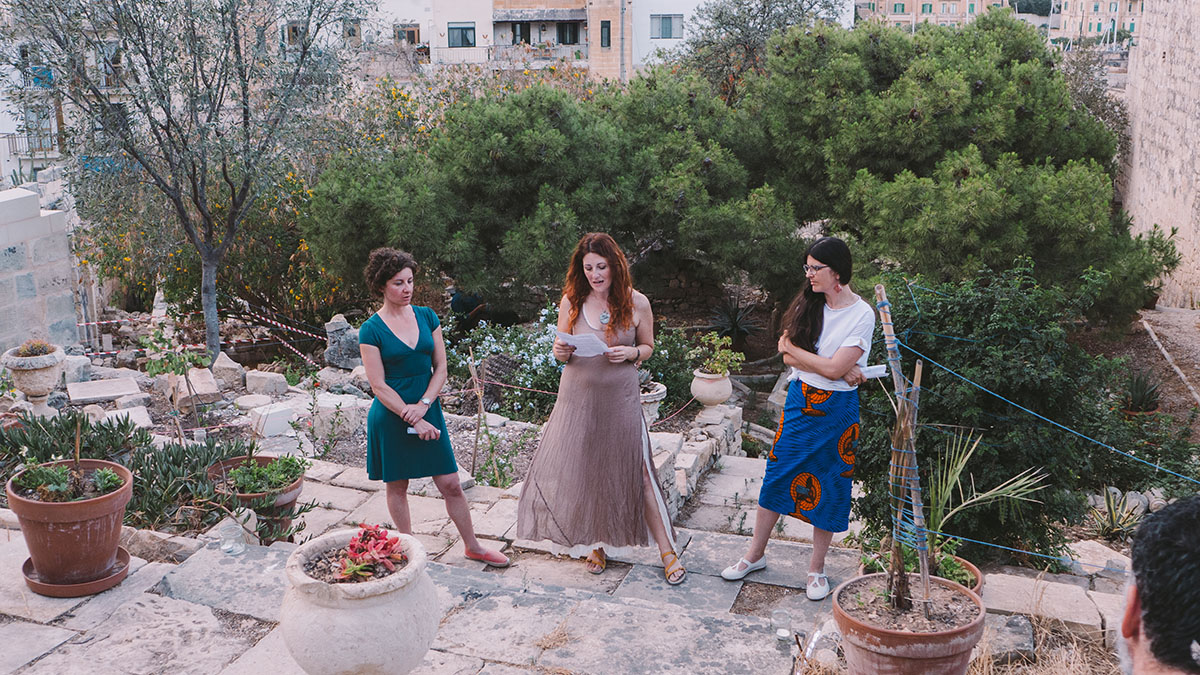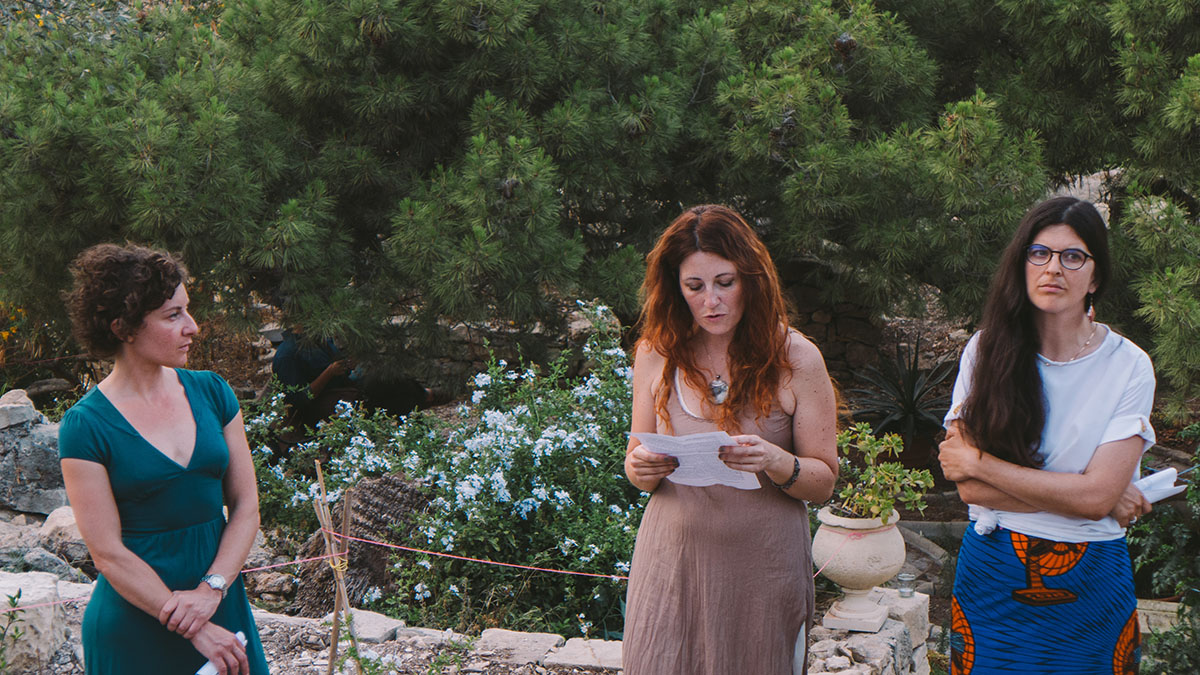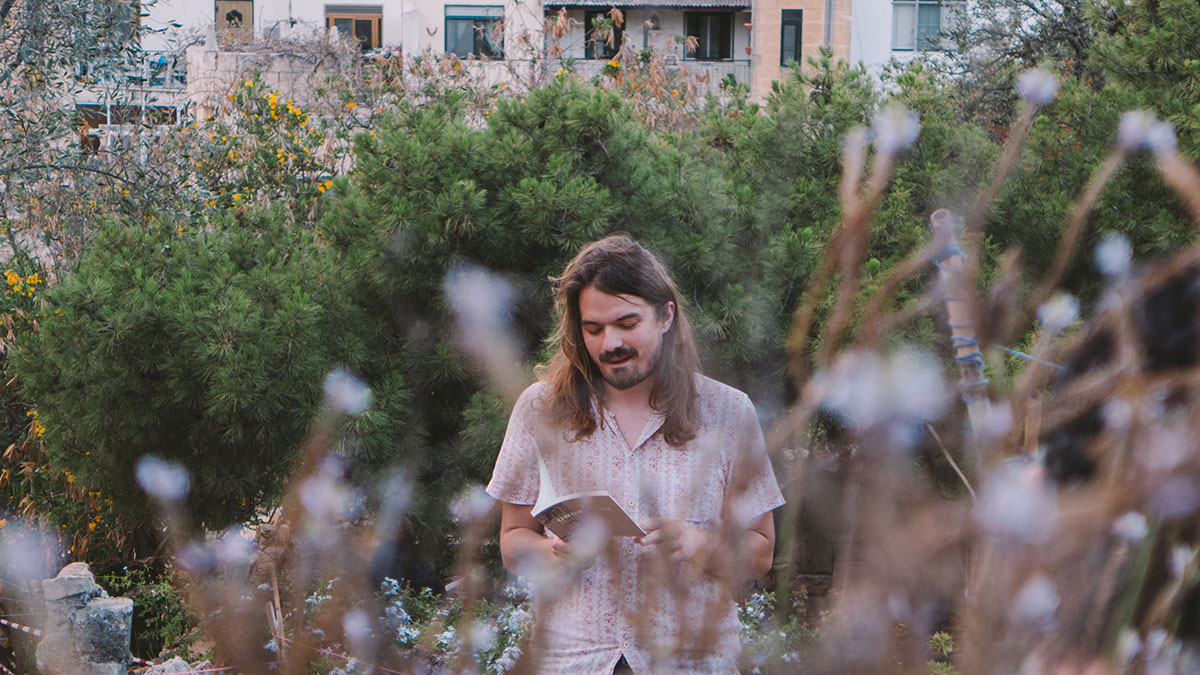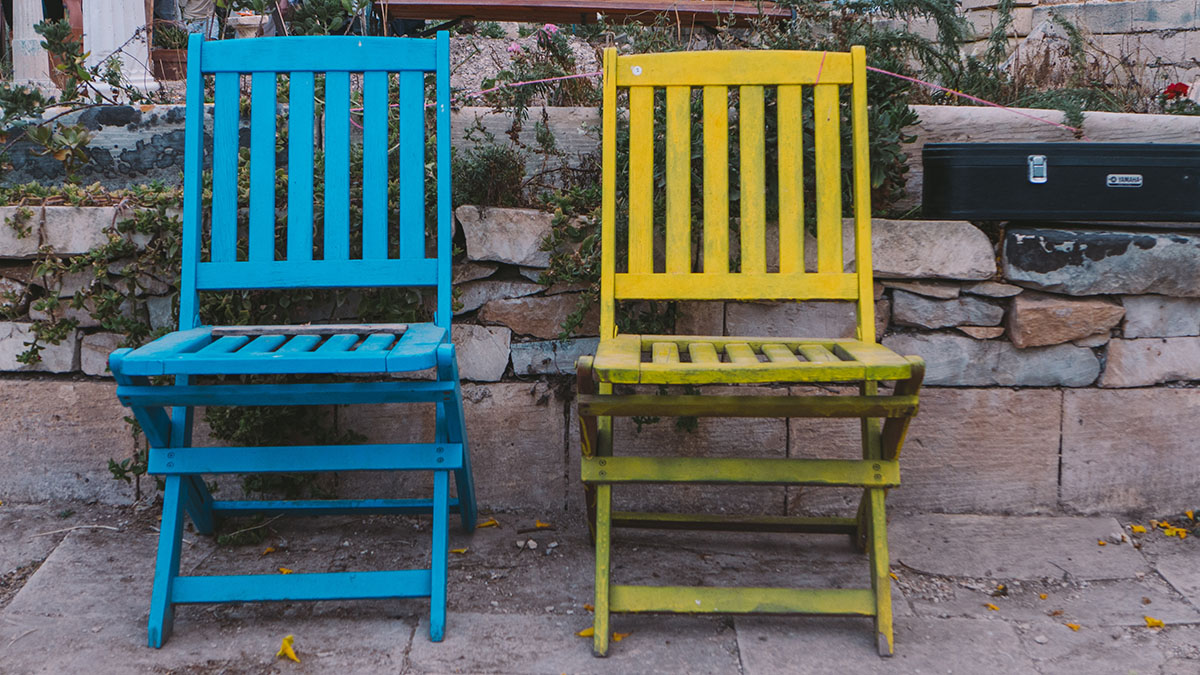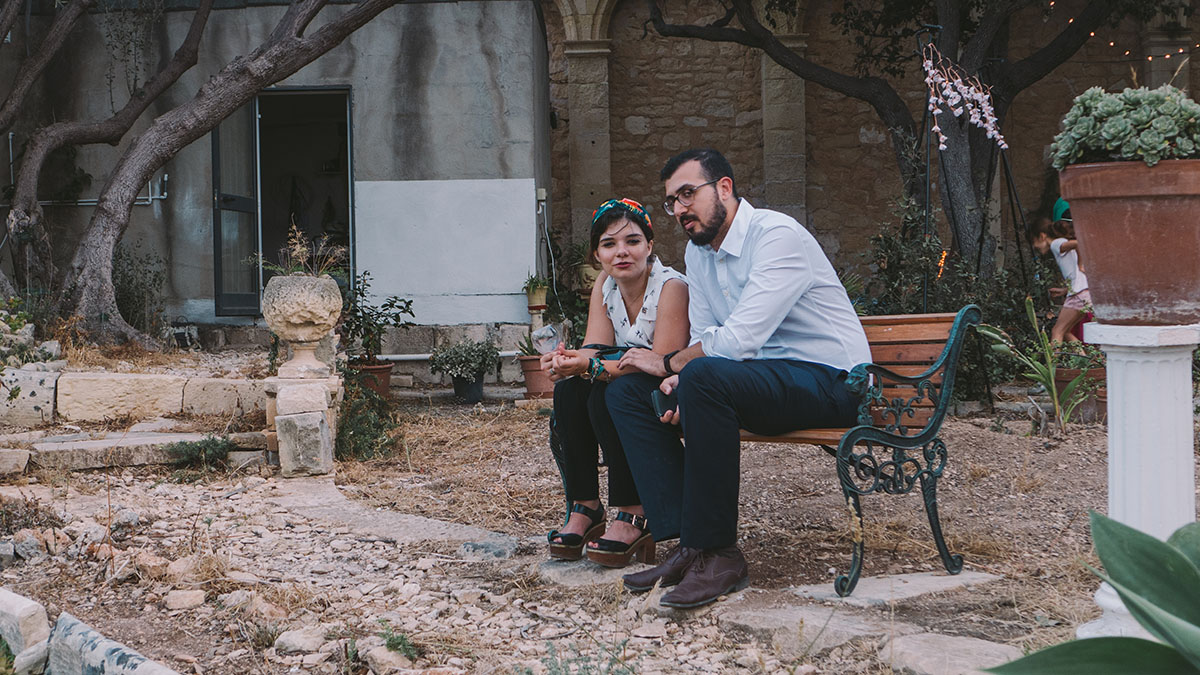The title of the book, Undertow, keeps the marine metaphor already present in the name of the project, Rima, and at the same time evokes what is an endless act of arriving and going away; an act that slowly makes the concerned surface more polished, by removing some past traces and by making room for potential future ones. And this by stirring the same material at disposal – the same grains of sand. The result is something new that however always recalls the old one.
The book has both the wave and the grains, namely the process and the materials; a collection of poetics, and more specifically, a collection of poetics of displacement portrayed by different languages and representations. Poetics in the sense of an ensemble of structured intentions, tensions and acts; displacement as a physical, mental and emotional movement, full of doubts, melancholy, regret, but also courage, hopes, strength and perseverance.
The place too, the Villa Frere garden, which makes us feel both fascinated and melancholic, is a poetics of displacement itself, involving the same emotions. Because of its history, because of the way we feel it, as soon as we enter.
Everything here looked as though it was dragged away from its original site, everything here alluded to a lost time, a lost place, both impossible to recreate as they were once. Nevertheless, at the same time, every corner showed us the brightness of a persevering effort, a potential reconstruction and, consequently, a new way to experience it.
That is why this garden fitted perfectly with our project and its outcome: this book being a collection of displacements and reconstructions; of what it is at stake when leaving our homeland in order to live elsewhere; of the “homes” left behind, of the homes recovered.
A home, as this garden, is not just a space made by walls, plants and stones. It is a place made by tensions, passions, expectations and potentialities. A place structured, or better still, re-structured, by assembling again all the complex and various materials at our disposal, whether in its entirety or in pieces. It is a place we re-discover, although in a new setting, by dredging up portions of the past and trying to give them a new present shape that both recalls the old one while being something utterly new.
An endless undertow stirring, incessantly, the shape and the meaning of our present.
It was with these words that we welcomed people and invited them to an exploration of the garden, and of the book itself, by following the thread that puts together distant and less distant places, memories and present lives, objects and words.
Photos by Therese Debono
